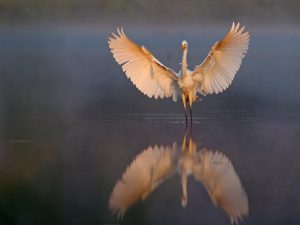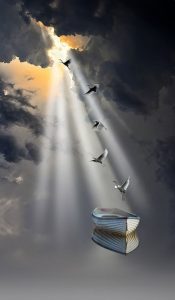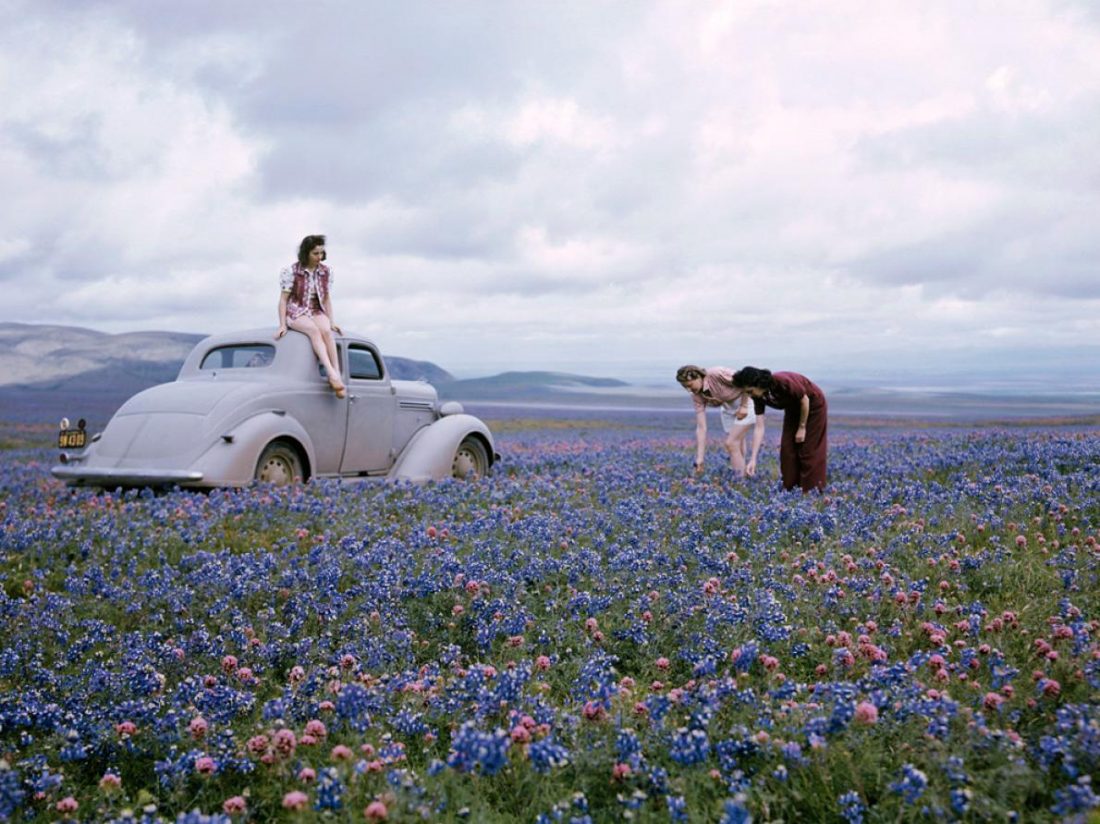Sun in Libra September 23rd
 “Be glad. Be good. Be brave,” wrote Eleanor Emily Hodgman Porter in her best-selling novel, Pollyanna. The year was 1913. This simple statement resonated in the matrix of the Collective Consciousness as the dark war clouds blotted the sun over the Balkans and young men were soon to drown in their blood in the trenches of World War 1. Ninety-nine years later, we continue to enlist in our private battles for survival—financially, emotionally, or spiritually. When everything around us seems to be falling apart, this steadfast statement bids us first and foremost, to be grateful. To conduct our lives with integrity and valour. The fortitude and unwavering optimism of eleven-year-old Pollyanna offered the comfort of hot-buttered toast and a cup of sweet tea at a point of impact in western civilization when there was no going back. When to be glad, good, and brave, was one constant beacon amidst cataclysmic change.
“Be glad. Be good. Be brave,” wrote Eleanor Emily Hodgman Porter in her best-selling novel, Pollyanna. The year was 1913. This simple statement resonated in the matrix of the Collective Consciousness as the dark war clouds blotted the sun over the Balkans and young men were soon to drown in their blood in the trenches of World War 1. Ninety-nine years later, we continue to enlist in our private battles for survival—financially, emotionally, or spiritually. When everything around us seems to be falling apart, this steadfast statement bids us first and foremost, to be grateful. To conduct our lives with integrity and valour. The fortitude and unwavering optimism of eleven-year-old Pollyanna offered the comfort of hot-buttered toast and a cup of sweet tea at a point of impact in western civilization when there was no going back. When to be glad, good, and brave, was one constant beacon amidst cataclysmic change.
So often we hit a wall. Collide with an immovable force that profoundly alters the trajectory of our life: the accident, the lawyer’s letter, the termination of our employment, the conversation with our doctor that leaves us hemorrhaging hope. We stand at the door unopened. We tremble; we know with every fibre of our being that there will be no going back. When we cross this threshold, this crossing will reverberate across future decades of our lives – and the lives of those we love so fiercely. When we take those fateful steps, we feel in the deep silence of our heart, that we have to choose: to be angry, bitter, desperately powerless to change or control what has gone before. Physicist Stephen Hawking who was diagnosed with motor neurone disease in his twenties believes. He once told the New York Times, “my expectations were reduced to zero when I was twenty-one. Everything since then has been a bonus.”
 The Sun moves into the sign of Libra on September 23rd, marking the Autumn or the Spring Equinox. The turning of the Great Wheel of the Year. The Scales of Balance are poised. Compromise or polarisation. Quiet desperation or the grace to remember that this is precisely what we have come here to do. In scales of Libra we hold the tension of opposites. Light and shadow. The paradox of our humanness in the eye of the storm.
The Sun moves into the sign of Libra on September 23rd, marking the Autumn or the Spring Equinox. The turning of the Great Wheel of the Year. The Scales of Balance are poised. Compromise or polarisation. Quiet desperation or the grace to remember that this is precisely what we have come here to do. In scales of Libra we hold the tension of opposites. Light and shadow. The paradox of our humanness in the eye of the storm.
 Richard Tarnas, author of Cosmos and Psyche, writes, “Our time is pervaded by a great paradox. On the one hand, we see signs of an unprecedented level of engaged global awareness, moral sensitivity to the human and non-human community, psychological self-awareness, and spiritually informed philosophical pluralism. On the other hand, we confront the most critical, and in some respects catastrophic, state of the Earth in human history. Both these conditions have emerged directly from the modern age, whose light and shadow consequences now affect every part of the planet.”
Richard Tarnas, author of Cosmos and Psyche, writes, “Our time is pervaded by a great paradox. On the one hand, we see signs of an unprecedented level of engaged global awareness, moral sensitivity to the human and non-human community, psychological self-awareness, and spiritually informed philosophical pluralism. On the other hand, we confront the most critical, and in some respects catastrophic, state of the Earth in human history. Both these conditions have emerged directly from the modern age, whose light and shadow consequences now affect every part of the planet.”
 Pollyanna is a virtuoso at making deliciously sweet lemonade from the tart lemons in her life. She adroitly gathers comfort and joy from the shards of pain and misfortune. And she is skilled at playing The Glad Game. The rules are simple: find something to be glad about in every circumstance of your life. She’s a waltzing in the moonlight Libran as she gazes about her, finding beauty in the world she sees.
Pollyanna is a virtuoso at making deliciously sweet lemonade from the tart lemons in her life. She adroitly gathers comfort and joy from the shards of pain and misfortune. And she is skilled at playing The Glad Game. The rules are simple: find something to be glad about in every circumstance of your life. She’s a waltzing in the moonlight Libran as she gazes about her, finding beauty in the world she sees.
Our evolutionary challenge this month is inner serenity and a selective, deliberate focus on those things that are right in the world and in our relationships. Lévy-Bruhl and, later, Jung, wrote of the Participation Mystique. That mystical participation that can manifest in situations and material things in our lives. That sense of wonder and magic that is inherent in small children and has been codified as The Law of Attraction. We are required to “always look on the bright side of life” as we bravely embrace the contradictions, the baffling complexity, and buckle up for those roller coaster rides that leave us whip-lashed, aching and bruised.
Happiness, and her twin sister, Joy, dance in Gratitude, in the “little things that are the hinges of the universe” according to newspaper columnist and novelist, Fanny Fern. Gratitude is a spoonful of sugar to crankiness. Gratitude is like a garden. It requires careful tending if we want it to flourish. It may require gentle coaxing back into bloom after a storm or the cruel crush of frost. It certainly takes a good sprinkling of imagination and a stir of magic to feel it sometimes, and yet like the fairies that sit on our garden wall and fly about our heads as we water the rose bushes, it is always there if we look. If we believe.
Melody Beattie believes,“Gratitude unlocks the fullness of life. It turns what we have into enough, and more. It turns denial into acceptance, chaos to order, confusion to clarity.”
Gratitude, like Love, is a choice. It’s an inside job. If we feel like Cinderella, no pumpkin carriage, no diamond tiara, glass slipper, or handsome Prince will make us authentically, radiantly happy. If we play the Glad Game, and cheat because we don’t truly believe, we can’t evoke the magic. We cannot fake it ’til we make it. We cannot buy, Botox, or bargain our way to Gratitude and contentment. We cannot pretend to be Little Miss Sunshine if we feel like The Snow Queen.
Gratitude must become habitual for the magic to work.
So, observe those wild geese that fly with the moon on their wings. Give thanks that the silver white winters will melt into springs … And hold steady in these challenging times. Encourage ourselves and each other to keep moving, keep focused, as new life emerges from the dead leaves of change. 











